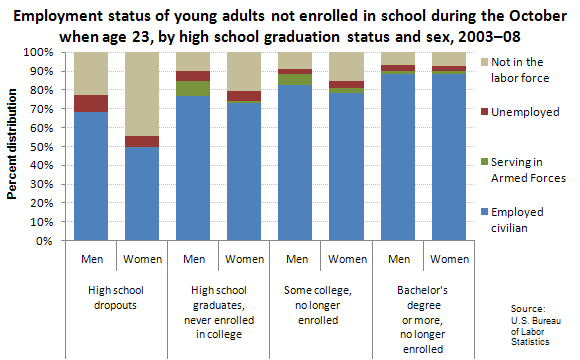Lessons from 23-Year-Olds
“Be cool– stay in school!” is the familiar saying; however, one might co-opt the expression to something a little more tangible: “Be Employed– Stay in School.”
The image of the employed may not be as alluring as the image of all things cool, but it does drive home the message that people who finish higher degrees are more likely to be successful in the job market.
The Bureau of Labor Statistics has released findings from a nationally representative survey of about 9,000 young men and women who were born during the years 1980 to 1984. The published statistics focus on the employment and unemployment of people at age 23.
The data show that the level of a person’s education indicates the likelihood that he or she will be employed. People with more education were more likely to be employed in civilian jobs and less likely to be unemployed or out of the labor force.
The survey also depicts the higher tendency of male high school graduates to seek employment by serving in the U.S. military.
In the October during the year in which they became 23 years of age, among high school graduates who had never enrolled in college, 8 percent of men and 1 percent of women were serving in the military. Among those who had attended some college but had not earned a bachelor’s degree and were no longer enrolled, the percentages were 6 percent were men, compared with 2 percent of women.
As a recruiter, do these figures compare to what you are seeing? How large is education’s role in securing a man or woman’s job?


